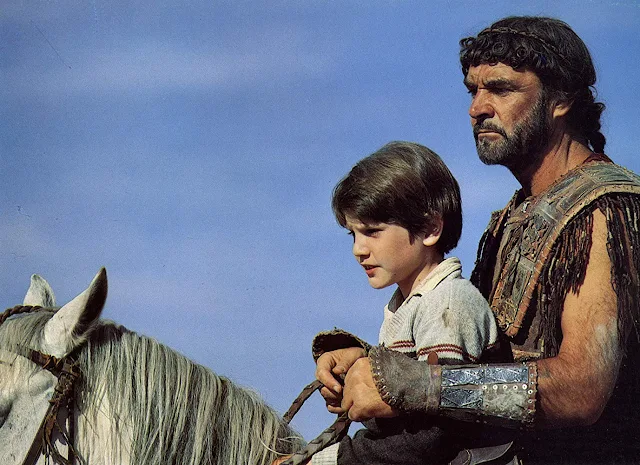 |
| Paul Dooley, Shelley Duvall, and Robin Williams in Popeye |
Cast: Robin Williams, Shelley Duvall, Ray Walston, Paul Dooley, Paul L. Smith, Richard Libertini, Donald Moffat, MacIntyre Dixon, Roberta Maxwell, Donovan Scott, Allan F. Nichols, Wesley Ivan Hurt, Bill Irwin. Screenplay: Jules Feiffer, based on characters created by E.C. Segar. Cinematography: Giuseppe Rotunno. Production design: Wolf Kroeger. Film editing: John W. Holmes, David A. Simmons. Music: Morton Stevens, songs by Harry Nilsson.
The busy, noisy adaptation of the Popeye cartoon was not particularly well-received by either critics or audiences when it was released, and it was something of a commercial disaster because of cost overruns during its filming in Malta. Much of the blame fell on its director, Robert Altman, but a lot of it had to do with its flamboyantly indulgent producer, Robert Evans, and some also cited the widespread use of cocaine on the set. The casting can't be faulted: Robin Williams in the title role and Shelley Duvall as Olive Oyl couldn't be bettered. (Evans originally wanted Dustin Hoffman and Lily Tomlin to play the roles.) But the songs by Harry Nilsson lack melodic hooks and the decision to record them live on the set was a mistake, considering that none of the actors was a real singer. Popeye has its moments, many of them contributed by the appealing Wesley Ivan Hurt, Altman's grandson, as the infant Swee'pea, but it's really something of a mess.




